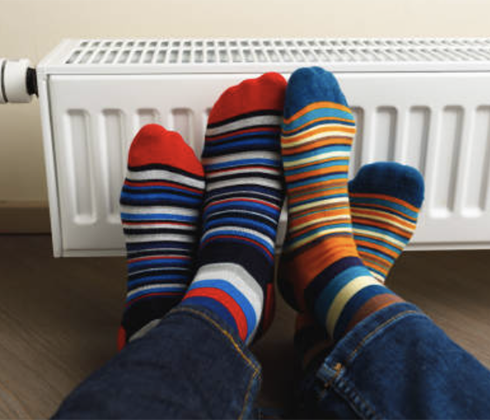Is keeping your heating off bad for your home?
With the cost of living at a seemingly all-time high, many of us have been looking for ways to cut costs wherever possible. Seeing as heating costs are a main contributing factor to the squeeze on our wallets, it makes sense to consider cutting heating as a great way of reducing monthly expenses.
Keeping your heating off isn’t always as straightforward as it sounds, however, and it’s important that you’re aware of the risks. From mould growth to plumbing issues, these are a few things to think about before going heat-free.
Mould
One of the main issues associated with leaving heating off is mould growth. If your home is constantly cold, dampness will start to accumulate, leading to mould growth in the carpet, on the walls, and in a range of other spaces.
This isn’t just an aesthetic issue. It can pose a serious health risk (especially to those with already compromised health) and can lead to a range of other structural issues. Keeping the heating off can result in a range of big expenses, and you’ll rarely actually benefit from any cost savings.
Boiler complications
Boilers, like many other machines, aren’t meant to just be left alone without any use at all. Simply not using your heating won’t make your boiler last much longer in many cases – in some scenarios, it could even result in your boiler breaking down.
If you’re concerned about your boiler and think that leaving it turned off is the only solution, it’s worth talking to a boiler technician. Someone from a provider like Able Plumbers will be able to take a look at your boiler, run some basic tests, and give it a service that leaves it fit and ready for its winter demands.
Health issues
Even if you don’t develop mould in your home, living in a very cold environment can be dangerous. While it can be good to sleep in a slightly cooler room, most sources suggest somewhere around 18 degrees, potentially as low as 16.
Living in an environment that’s below 16 degrees can start to increase the chances that you pick up an illness. Below 13 degrees is even more dangerous, and can increase your chances of getting a blood clot – something that the elderly need to be extra attentive to.
Potential plumbing complications
Lastly, if the temperature gets below freezing, you can start to risk damaging your plumbing system. If water freezes in the pipes, it can result in serious leaks, which can potentially ruin your home.
If you’re leaving the house during the winter for a few days or weeks, don’t just turn the heating off. Leave the thermostat on at a low setting, to ensure that your plumbing remains safe and no dampness or mould is able to develop.
Heating isn’t just an optional nicety in most modern homes. It’s important to live in a warm environment for our health and for the health of our homes. Instead of turning the heating off, we recommend looking for other cost-saving options, like more efficient boilers and better insulation.












